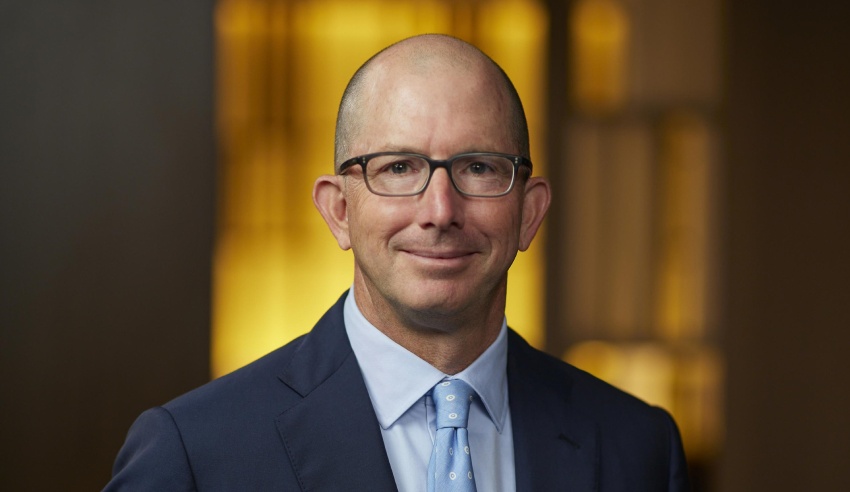Prioritising pro bono work post-pandemic will benefit all parties involved, according to Johnson Winter & Slattery’s managing partner.

After launching its first centralised pro bono practice in 2019, it has grown rapidly to exceed the national pro bono target in only two years. Sixty-eight per cent of JWS partners did pro bono work, and 44 per cent of all lawyers did over 20 hours of pro bono work, marking a sizable achievement for the firm.
“It is important for firms to develop a range of pro bono opportunities, so everyone has the chance to contribute in the way that best suits their skills and experience. We find secondments are great for developing our junior lawyers, especially in terms of advocacy and communication skills, and if they can extend for a reasonable period, they make a real contribution to the community organisation,” he said.
“Clinics provide our time-poor lawyers with the opportunity to participate for a few hours at a set time without them having to undertake ongoing matters. Referral matters enable our lawyers to work on matters relevant to their commercial practices and give more in-depth advice and assistance.”
Over the past two years, JWS has grown its pro bono practice from ad hoc assistance to 48 pro bono hours per lawyer in 2020 and 2021. Over 75 per cent of the firm’s lawyers did pro bono work – something which Mr Davis said was a reflection of the firm’s steadfast pro bono focus.
“This achievement reflects a deliberate and focused investment in the practice at a management level, but also the enthusiasm of our partners and lawyers, and the real desire to help those who are disadvantaged. It has been a clear cultural shift with substantial support within the firm,” he said.
“A strong commitment to social justice and community engagement was ‘who we wanted to be’ as a firm and what we considered was part of our professional obligations, so an investment in a formal practice was required.”
Whilst JWS has always done some pro bono work, Mr Davis said that as the firm grew, a more structured approach became necessary. To set up their practice, the firm appointed a pro bono partner, engaged in internal and external consultations to develop effective policies and procedures, provided recognition for pro bono work undertaken, and shared monthly pro bono highlights firm-wide.
“We have worked hard to ensure our lawyers are directly helping the people most in need of assistance, rather than causes of personal interest which might not fit our focus. This has involved often saying ‘no’ and pivoting away from some pre-existing non-charging clients,” Mr Davis added.
“In the first year alone, and alongside all of the ground work, we were able to grow the practice by 300 per cent. The success of the program is largely due to the hard work, determination and passion of the team driving the program and the commitment of our lawyers.”
In order to grow their pro bono offering so rapidly, JWS works with a number of organisations, such as St Vincent de Paul Society Sydney, Mary’s House and Ronald McDonald House Charities, as well as with Justice Connect, Law Access, Trust Law and Legal Aid to obtain referrals to assist individuals and charities. In addition, the firm participates in regular clinics advising self-represented persons and has ongoing secondments which are “targeted to place lawyers in positions where they use their skills and where they gain relevant experience,” according to Mr Davis.
“Our challenge for the future is to obtain a greater spread of work amongst our lawyers – having every lawyer at the firm do pro bono work is the goal. We are also keen to take on some larger strategic litigation, as well as continuing to represent individuals in smaller matters,” he said.
“The pandemic intensified a range of social issues, such as homelessness and tenancy issues, family violence, inequality of education access, mental health issues and employment and financial stress. An increase in social and economic issues leads to an increase in legal needs. We have tried to pivot our program to respond to areas of increased need, for example, part way through the first lockdown, we sent two full-time secondees to assist in residential tenancy work at a community legal centre.
“Further, many of our organisational pro bono clients have seen a significant increase in demand for their services during the pandemic and a range of new issues – such as government mandates on vaccination. All this means that many pro bono clients require more assistance from their legal advisors post-pandemic.”
The increase in pro bono work has also had numerous benefits for the firm.
“Pro bono work is an element of our investment in our people. It contributes to training and allows lawyers to diversify their skills and often step up to take the lead on matters. It enables our lawyers to develop and hone skills that are directly relevant to their commercial practices. For example, on secondment our junior lawyers may advise on areas of law that we as a firm do not cover,” Mr Davis added.
“There are culture benefits too; there is an excitement and sense of fulfilment from pro bono work, which builds community within the firm.”

Lauren is the commercial content writer within Momentum Media’s professional services suite, including Lawyers Weekly, Accountants Daily and HR Leader, focusing primarily on commercial and client content, features and ebooks. Prior to joining Lawyers Weekly, she worked as a trade journalist for media and travel industry publications. Born in England, Lauren enjoys trying new bars and restaurants, attending music festivals and travelling.